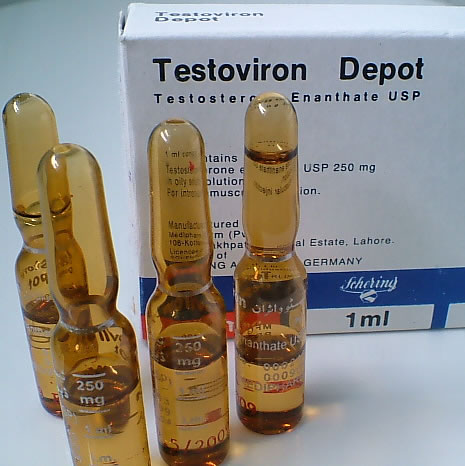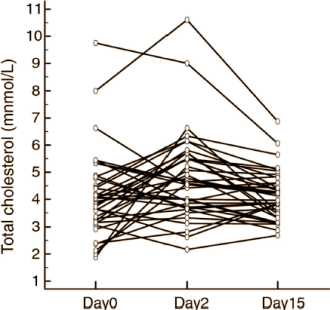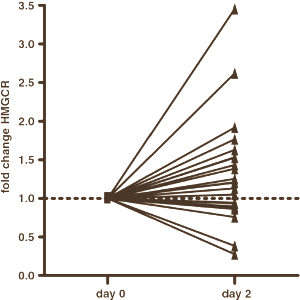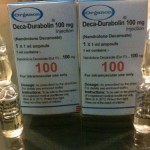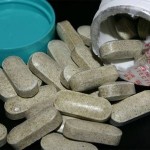By Admin – Steroidal.com
Testosterone Enanthate is a testosterone derived anabolic steroid that has been around since the 1950s. Testosterone Enanthate and Testosterone Cypionate are probably the most popular of all testosterone-based anabolic steroids, along with Sustanon 250. An injectable steroid with the Enanthate ester attached slowing the release of the parent hormone, Testosterone, comes in a variety of concentrations. The most common of which is 250mg per ml found in amps and 10ml vials. Injectable testosterone based anabolic steroids are important as they are widely used as a base in the majority of steroid cycles, and are also the most common delivery method when administering hormone replacement therapy (HRT).
Of course, bodybuilding testosterone dosages are far more than HRT, sometimes being 5-8x more injected in the same period. With any anabolic steroid, side effects can be apparent, and Testosterone Enanthate is no different. Apart from the inhibition of natural testosterone levels Testosterone Enanthate can cause, other side effects can arise. Acne, gynecomastia, hair loss, hair growth (females), prostate problems, water retention, hypertension and aggression can all be evident in users and this is seen on various bodybuilding and steroids forums across the internet. However, some Testosterone Enanthate side effects aren’t discussed often due to the steroid user not getting blood tests to see what’s really going on inside.
Cholesterol profile impairment is perhaps one of the most important internal steroid side effects due to its link to coronary heart disease and stroke risks. Cholesterol is important because it can’t dissolve in the blood. It has to be transported to and from the cells by carriers called lipoproteins. Low-density lipoprotein, or LDL, is known as “bad” cholesterol. High-density lipoprotein, or HDL, is known as “good” cholesterol. These two types of lipids, along with triglycerides and Lp(a) cholesterol, make up your total cholesterol count. This is the single best indicator of heart disease the medical world use. So effects anabolic steroids have on cholesterol is important.
Today we’re going to look at a few studies on Testosterone Enanthate and its effects on lipids. A recent study done in 2012 at the Karolinska Institutet in Stockholm, looked at the effects on cholesterol from a single 500mg injection of Testosterone Enanthate [1]. Anything that lowers HDL (good) and raises LDL (bad) would be unfavourable and could lead to serious health issues if gone untreated or let to worsen.
One of the building blocks of cholesterol is mevalonate. Mevalonate is produced from the enzyme 3-hydroxy-3methylglutaryl-coenzyme-A [HMG-CoA] in the liver. This conversion is due to the enzyme HMG-CoA-reductase [HMGCR] which can change with diet and drugs effecting the users overall lipid profile.
Statins, which are taken widely in the USA, inhibit the enzymes responsible for this conversion, which allows the body to produce less cholesterol, meaning LDL declines. The Swedish researchers wanted to know whether Testosterone Enanthate raises cholesterol levels via the HMGCR enzyme. 39 men aged 18-50 years old were injected with a single shot of 500mg Testosterone Enanthate. The brand used was Schering, which is a pharmaceutical company who also product Primobolan.
After only two days their cholesterol level was 15% higher than baseline. A massive 80% of the men had increased of the cholesterol-producing enzyme HMGCR. This is shown in the figure below.
The researchers conclude that Testosterone Enanthate doesn’t boost HDL but also has adverse effects on total cholesterol levels. This experiment lasted only 15 days where the cholesterol levels returned to normal after the single Testosterone Enanthate shot.
So what about longer studies? Well, another study was done over a six-week period where subjects were given Testosterone Cypionate. Eight normal healthy eugondal males were given 150mg Testosterone Cypionate for two weeks, followed by 300mg for another two weeks, then finally 600mg for the final two weeks [2]. A 21% decrease in HDL was seen after the 300mg dose and no further depression of HDL was seen after the 600mg Testosetrone dose.
The researchers conclude, “Our findings suggest that Testosterone Cypionate adversely affects cholesterol fractions, that this effect reaches its full magnitude even at very modestly supraphysiologic doses, and that this effect persists for several weeks after discontinuation of the drug.”
Finally, a much larger study done in 1995, examined the effects of 200mg per week of Testosterone Enanthate (TE) given to thirty-six men over a 12-month period [3]. This is far more applicable to HRT patients considering HRT exogenous testosterone doses are from 100mg up to 200mg per week. The researchers write,
“Considering all men together, HDL-C levels were decreased in 78% of the men by month 3, 83% by month 6, 94% by month 9 and 97% by month 12 of treatment.”
“It is concluded that: (1) injection of 200 mg TE/week causes a 15-20% decrease in HDL-C in normal men with no effect on other lipoproteins.”
After one month this negative effect on HDL was reversed after stopping Testosterone Enanthate treatment.
We think its far to say the use of Testosterone Enanthate, Testosterone Cypionate or any exogenous testosterone has negative effects on lipids, even in a short space of time. The good news as this was stopped when the testosterone administration ceased, but that’s not ideal for HRT patients. Any HRT program will monitor internal effects by once or twice per year blood testing. We’d suggest following a diet rich in fruits, vegetables and consume 5g Omega-3 per day. Supplements that can aid in cholesterol levels are red yeast rice extract, garlic, green tea extract, Niacin and Coenzyme Q10.
[1]. Subst Abuse Treat Prev Policy. 2012 Mar 20;7(1):12.
[2]. Clin J Sport Med. 1996 Jul;6(3):152-7.
[3]. Int J Androl. 1995 Oct;18(5):237-42.




